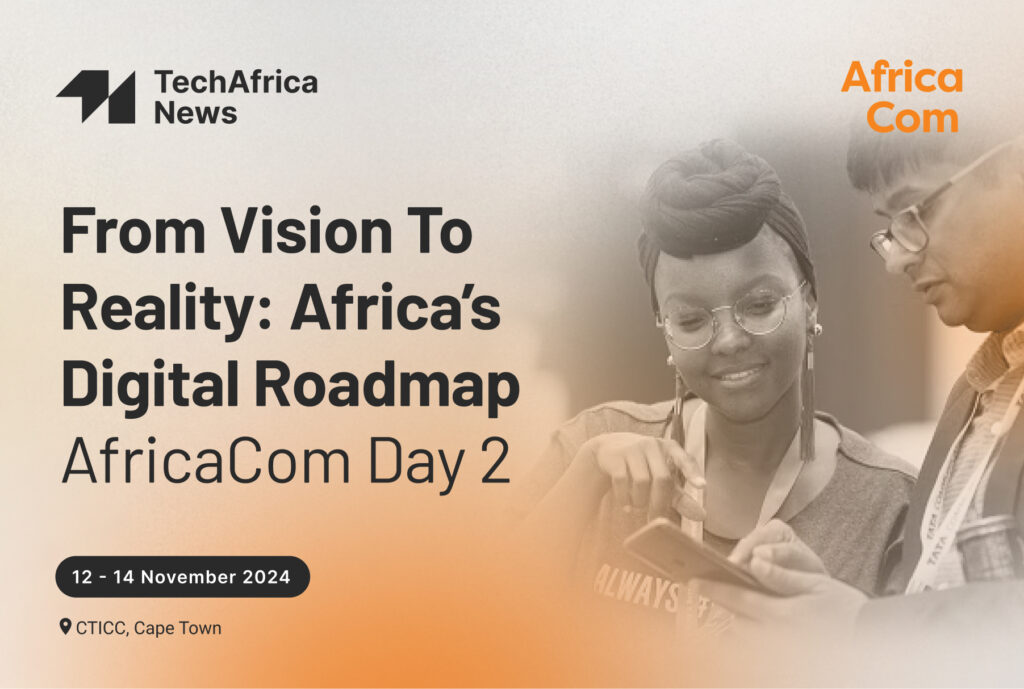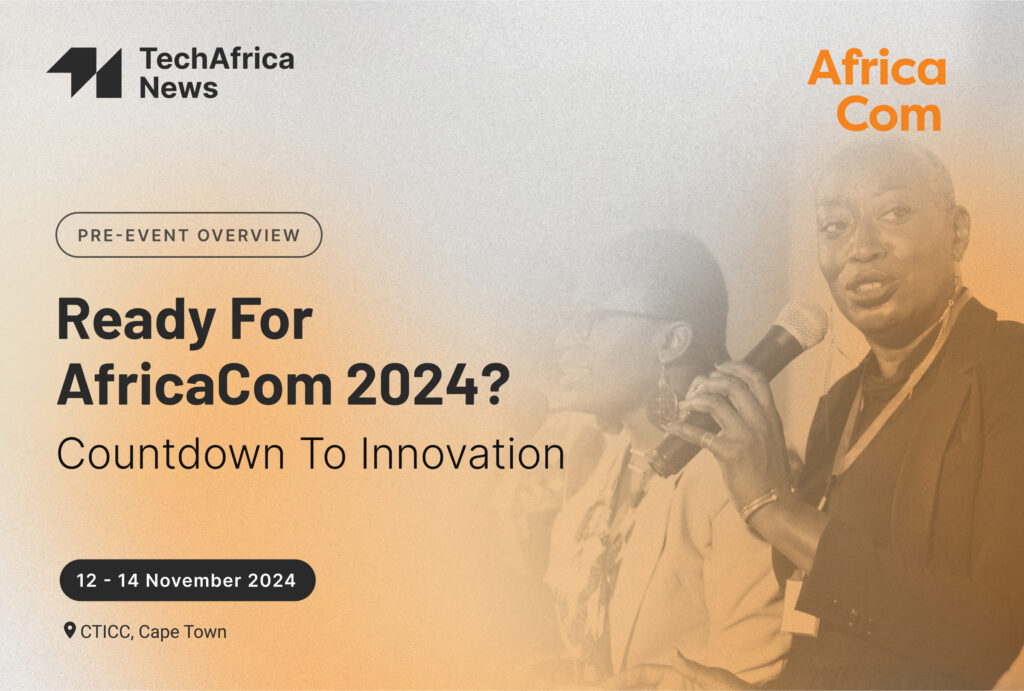Q&A | Inside Africa CDC’s Vision and Strategy for a Resilient, Digitally Driven Healthcare System

As the Africa HealthTech Summit 2024 kicks off today, the conversation around digital health in Africa has never been more critical. Health technology is rapidly reshaping the healthcare landscape across the continent, creating solutions that address deep-rooted issues in access, quality, and resilience. Digital health innovations, from AI-driven diagnostics to mobile health platforms are enabling Africa to bypass traditional barriers and extend vital healthcare services to underserved populations. For Africa CDC, health tech is not just a tool; it’s an integral component of a resilient, future-ready healthcare system capable of meeting both current and emerging public health needs.
Health tech is absolutely vital for Africa’s development. It presents opportunities to address the continent’s healthcare challenges, including access to care, disease surveillance, and health system management. Technology can bridge the healthcare gap by offering innovative solutions like mobile health platforms, telemedicine, and AI-driven diagnostics, especially in remote and underserved areas
– Jean Philbert Nsengimana, Chief Digital Advisor, Africa CDC

As an official media partner of the Africa HealthTech Summit 2024, we’re excited to spotlight a timely and insightful conversation with Jean Philbert Nsengimana, Chief Digital Advisor at Africa Centres for Disease Control and Prevention (Africa CDC). Ahead of the summit, Nsengimana sat down with our Founder and Chief Editor, Akim Benamara, to discuss the transformative potential of digital health, the progress of Africa CDC’s digital strategy, and the obstacles still to overcome in building an interconnected, resilient healthcare system.
In this exclusive Q&A, he reveals how digital health initiatives are empowering healthcare systems across Africa, highlights the role of the Africa HealthTech Summit in fostering essential collaborations, and shares his vision for the continent’s digital health future. With Africa CDC’s strategic initiatives and the partnerships fostered at events like the Africa HealthTech Summit, the continent is making significant progress toward a digital health revolution.
Read on for our in-depth discussion with Nsengimana as we explore the impactful strides in Africa’s health tech landscape and the significant role that this summit will play in driving forward innovation and partnerships across the continent.
How crucial is health tech to Africa’s overall development, and what unique opportunities does it present for improving healthcare on the continent?
Health tech is absolutely vital for Africa’s development. It presents opportunities to address the continent’s healthcare challenges, including access to care, disease surveillance, and health system management. Technology can bridge the healthcare gap by offering innovative solutions like mobile health platforms, telemedicine, and AI-driven diagnostics, especially in remote and underserved areas. The potential for better patient data management, real-time disease tracking, and improving supply chain systems will lead to more efficient and accessible healthcare delivery.
What do you have to say about the current state of digital health in Africa, and how do you see it evolving in the next few years?
Africa’s digital health landscape is growing rapidly, with innovations like mobile health, telemedicine, and AI-driven tools increasingly emerging across the continent. Countries like Kenya, South Africa, Rwanda, and Nigeria are leading the way, and we are seeing governments and startups alike recognizing the role of digital health in solving local health challenges. In the next few years, I expect a stronger push toward integrating these technologies into national health systems, leading to more personalized care, broader access, and better health outcomes, especially in areas with limited resources.
Since the launch of Africa CDC’s first digital strategy, what kind of impact have you seen so far? How is it changing the way public health is approached in Africa?
The digital strategy has already started to transform public health by emphasizing three key priorities: 1) the digitization of primary care through the HealthConnekt Africa initiative, which aims to connect 100,000 health facilities to electricity and the internet and train 2 million community health workers; 2) health tech innovation, highlighted by the launch of the Africa CDC HealthTech Marketplace, which will scale innovative solutions across the continent; and 3) digital health workforce development, with the imminent launch of the Africa CDC Health Informatics Fellowship. These efforts are collectively transforming how public health is approached, emphasizing data-driven decision-making and expanding access to healthcare through technology.

What are the key factors driving the success of countries like Nigeria, South Africa, Kenya, Rwanda, and Egypt in health tech, and what can other African countries learn from them?
These countries have invested in infrastructure, built strong partnerships between the public and private sectors, and encouraged innovation through supportive policies. They also have a growing base of local talent in tech and health that has been critical to their progress. Other African countries can learn from their focus on creating an enabling environment for innovation, improving digital literacy, and fostering collaboration between stakeholders. Importantly, strong leadership and commitment to scaling solutions nationally and regionally have been driving forces.
In your role as Chief Digital Advisor, what factors do you identify as holding back the growth of health tech in Africa?
Some of the major factors include insufficient funding, limited digital infrastructure, and fragmented regulatory environments. There is also a need for more skilled digital health workers and a lack of interoperability between different health systems. Addressing these issues requires coordinated efforts from governments, development partners, and the private sector to build infrastructure, provide training, and create policies that promote innovation while ensuring safety and privacy.
Do you have any recommendations on how regulatory frameworks can be improved to support innovation while ensuring patient safety?
Regulatory frameworks should be adaptive, allowing for innovation while maintaining strong safety standards. Establishing regulatory sandboxes where innovators can test new technologies in a controlled environment is one approach. Additionally, harmonizing regulations across countries in Africa can reduce barriers for startups looking to scale across the continent. Clear guidelines on data privacy, AI in healthcare, and interoperability will help build trust and accelerate adoption.
How do you see AI impacting health tech in Africa, and what specific areas do you believe will benefit the most from its integration?
AI has the potential to revolutionize healthcare in Africa, particularly in diagnostics, predictive analytics, and personalized medicine. AI-driven tools can help in early detection of diseases, such as tuberculosis and cancer, by analyzing medical images. It can also be used for predictive modeling to anticipate outbreaks and optimize resource allocation. The areas of diagnostics, supply chain management, and health system optimization will benefit greatly from AI integration.

What are the major challenges holding African healthcare startups back, and how can they be supported to thrive?
African healthcare startups face challenges like limited access to funding, navigating complex regulatory environments, and scaling across fragmented markets. Support for these startups can come in the form of grants, access to incubators and accelerators, and creating more partnerships between startups and governments. Training and mentorship programs can also help build capacity, while regulatory harmonization would allow startups to expand more easily across borders.
What is your vision for the future of digital health in Africa, and what milestones would you like to see achieved in the next five to ten years?
My vision is for a connected digital health ecosystem where data flows seamlessly across borders, empowering healthcare workers and policymakers with real-time insights. I envision the majority of African countries having fully digitized health systems, integrated with AI-driven tools, that improve healthcare outcomes and reduce costs. Over the next five to ten years, I would like to see every country on the continent adopt digital health strategies, with strong regulatory frameworks, AI integration into public health systems, and more local innovations scaling to a global level. Additionally, I would love to see some successful HealthTech startups growing into zebra unicorns—reaching billion-dollar valuations and impacting a billion people.
Why is the Africa HealthTech Summit (Kigali, 29-31) important, and how does it fit into Africa CDC’s digital transformation strategy?
As part of Africa CDC’s digital transformation strategy, the summit supports efforts to scale digital health innovations, strengthen health system resilience, and build a skilled workforce.
The Africa HealthTech Summit is crucial because it brings together key stakeholders from across the continent and globally to drive health technology innovation. It provides a platform for showcasing innovative solutions, discussing emerging trends, and fostering collaborations between governments, private sector players, and development partners. – Jean Philbert Nsengimana, Chief Digital Advisor, Africa Centres for Disease Control and Prevention (Africa CDC)





